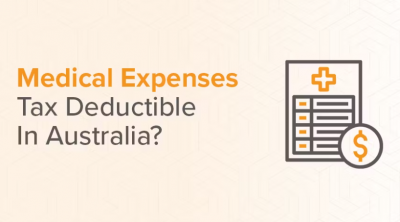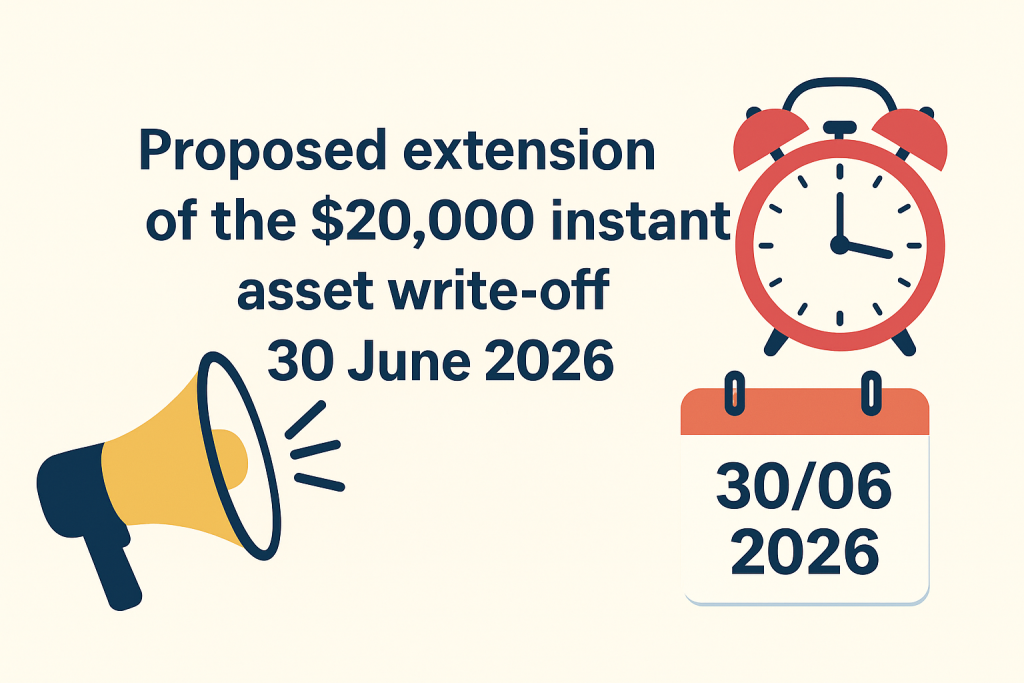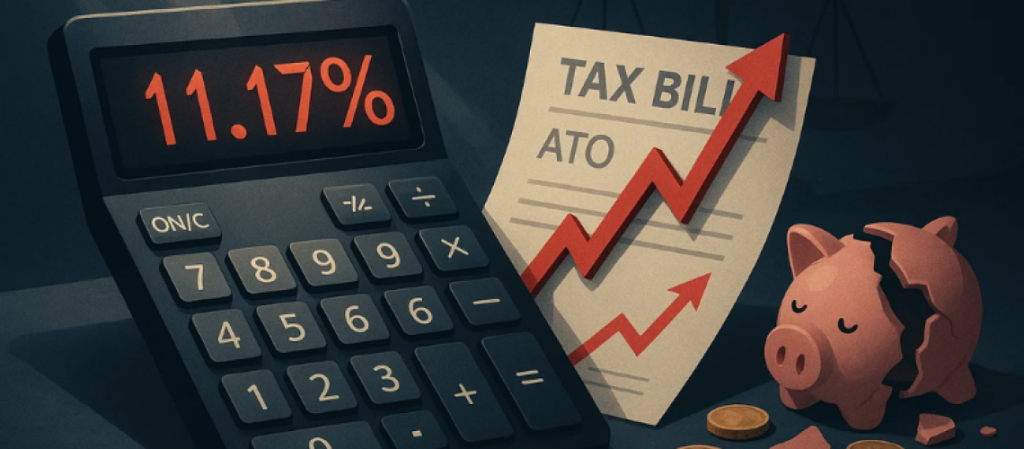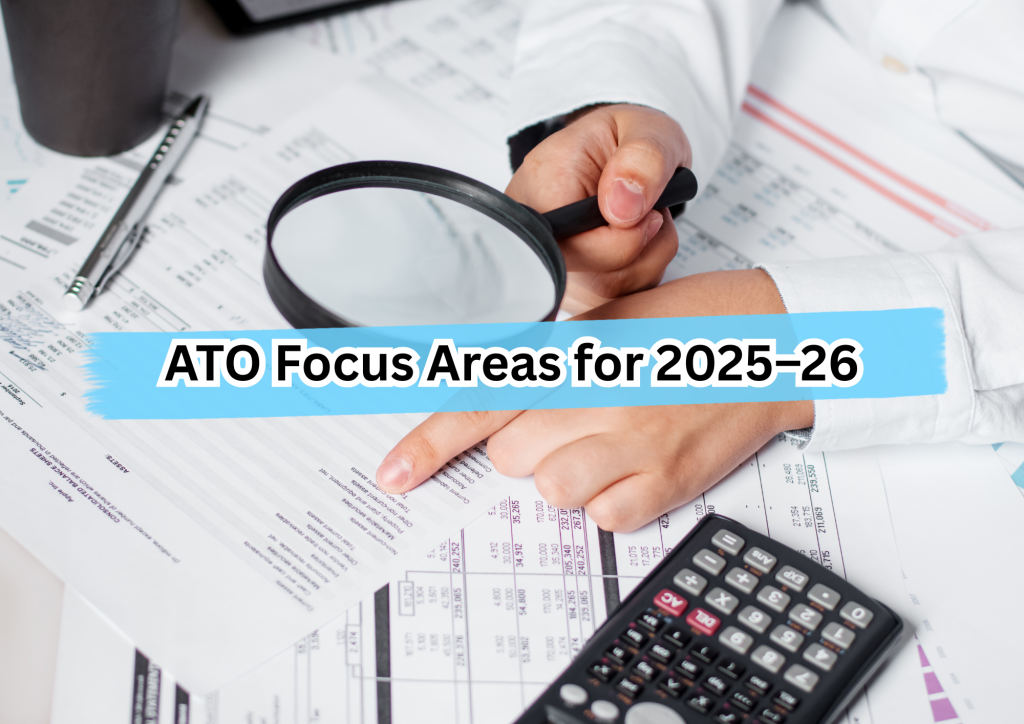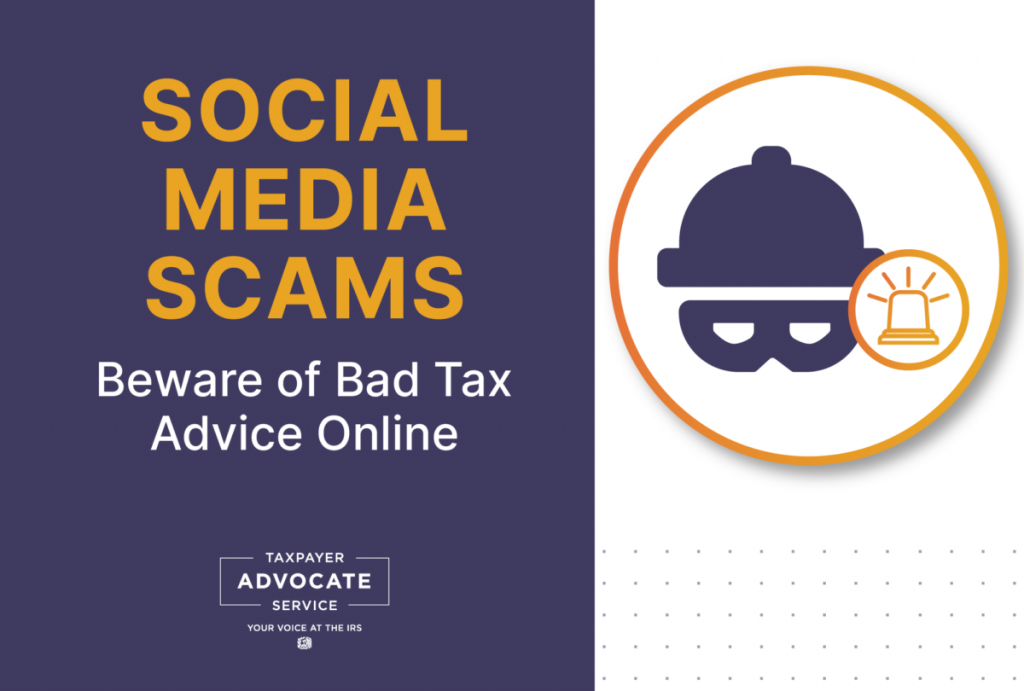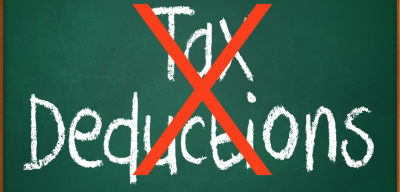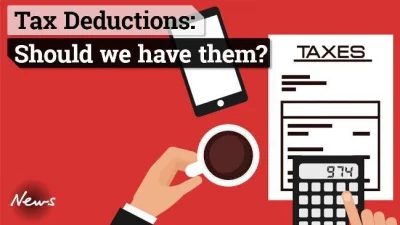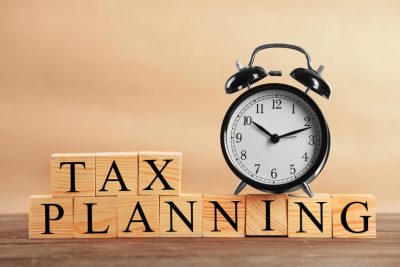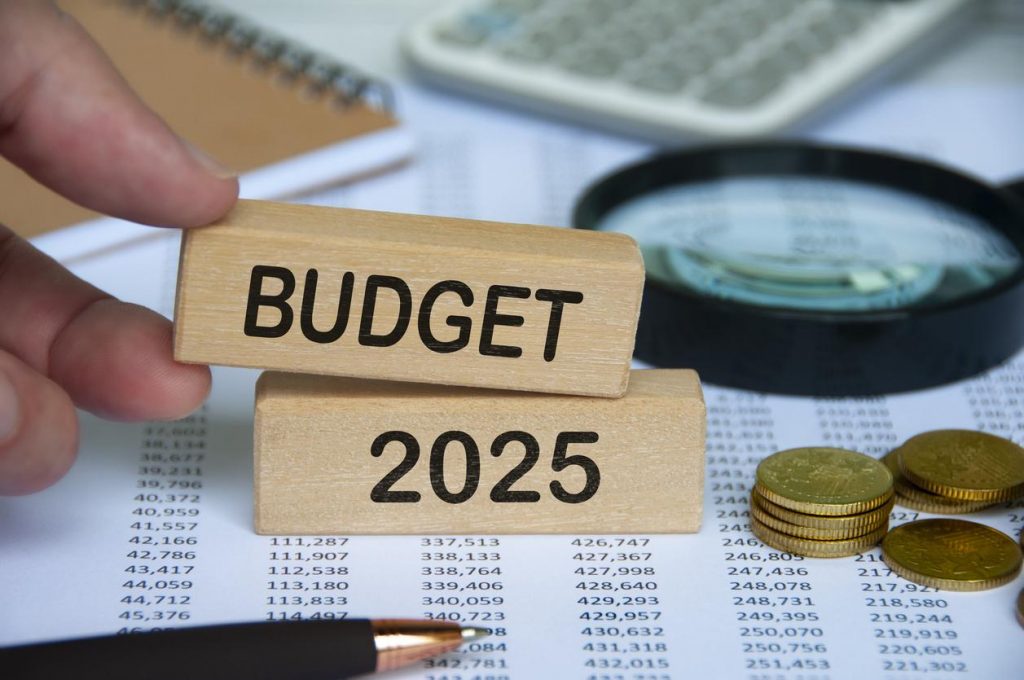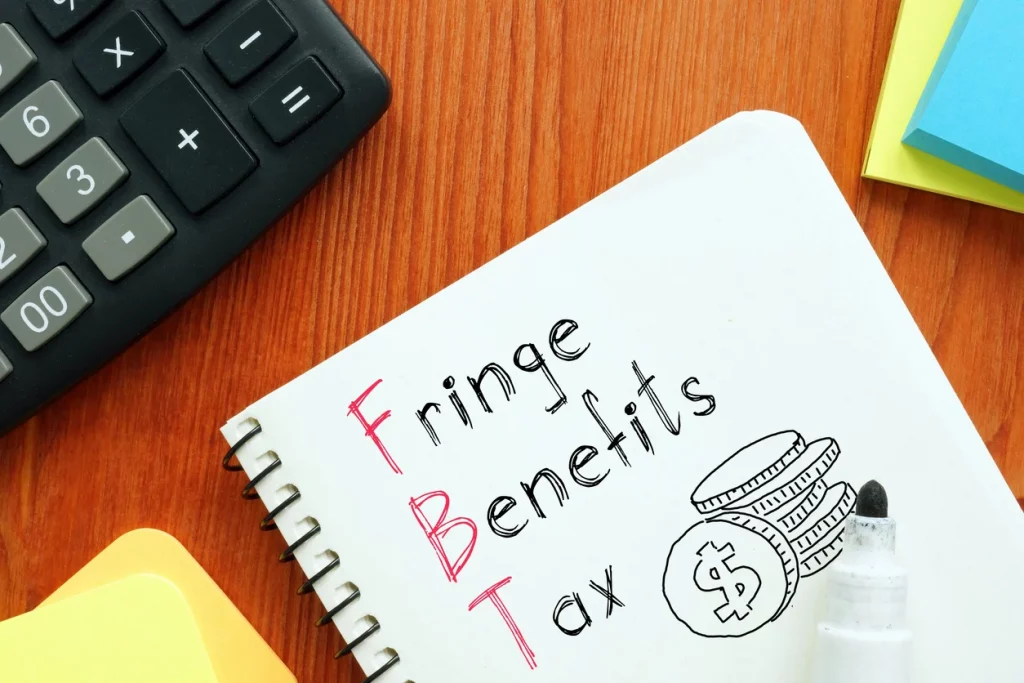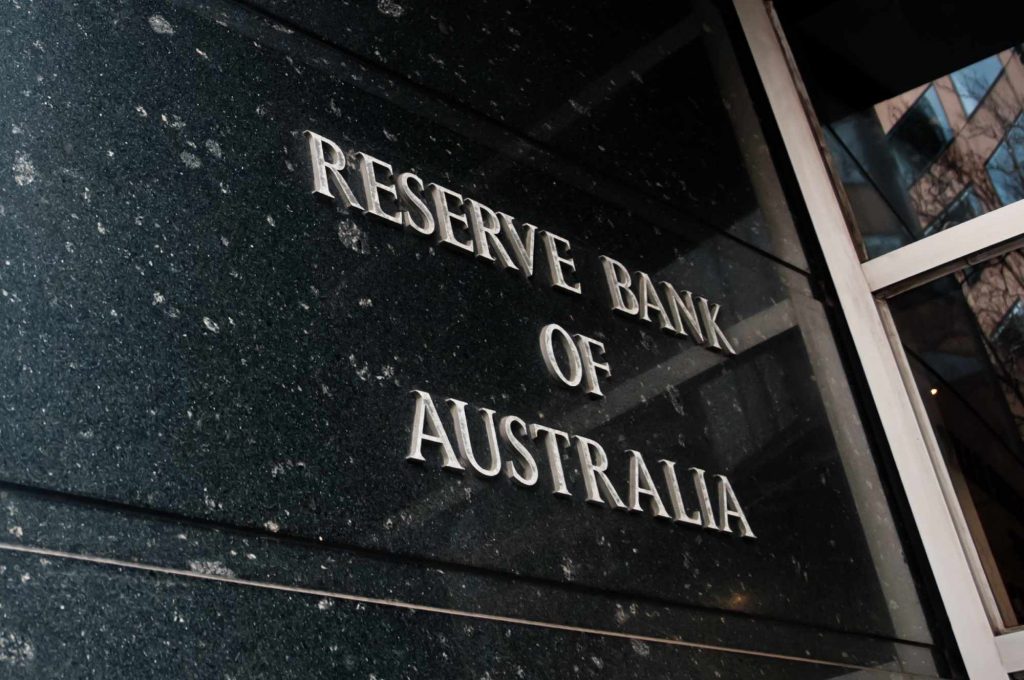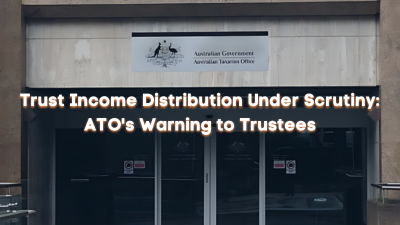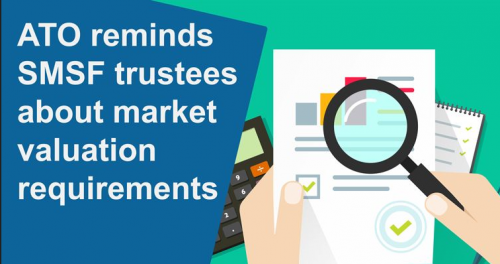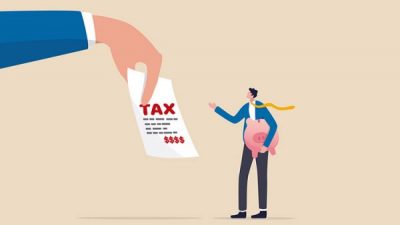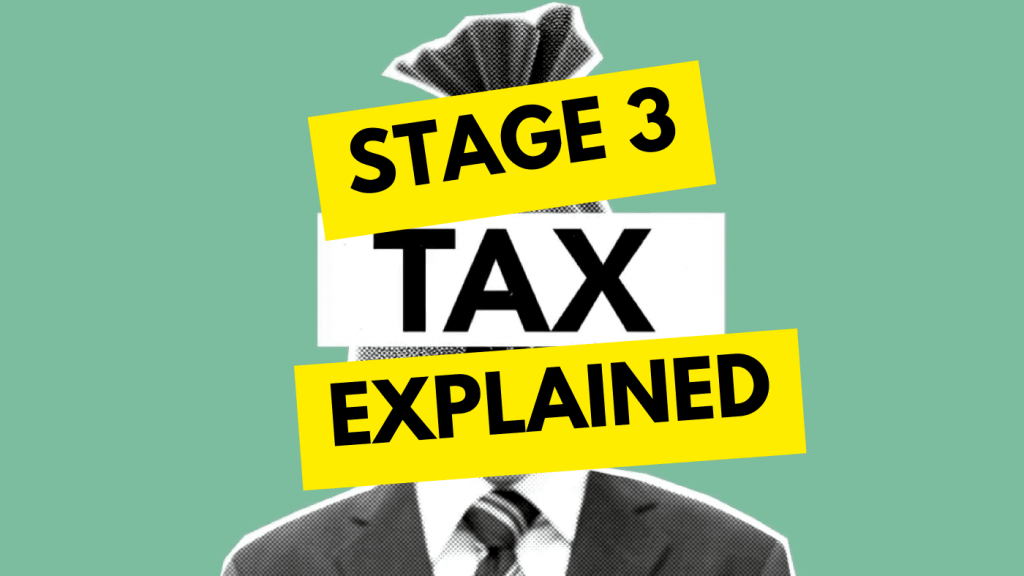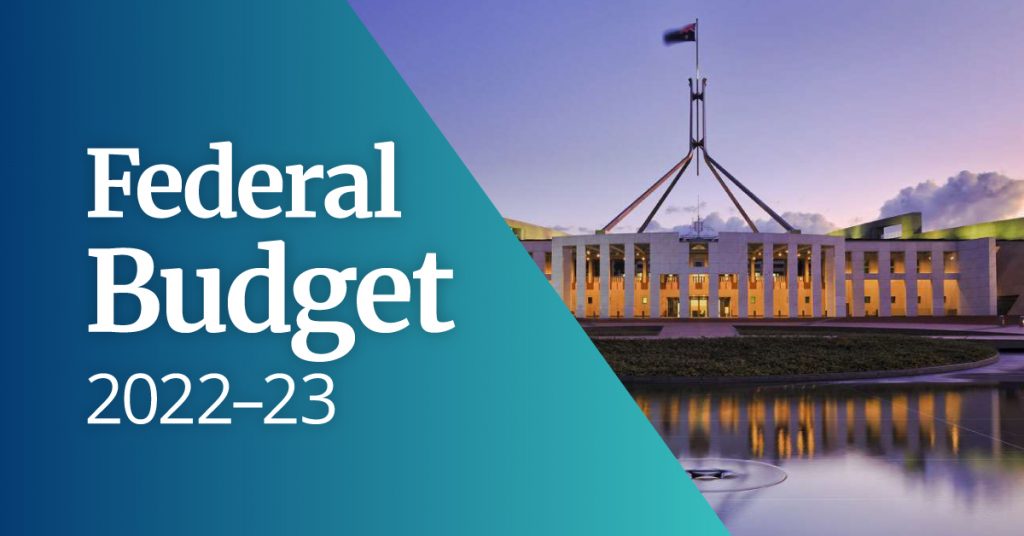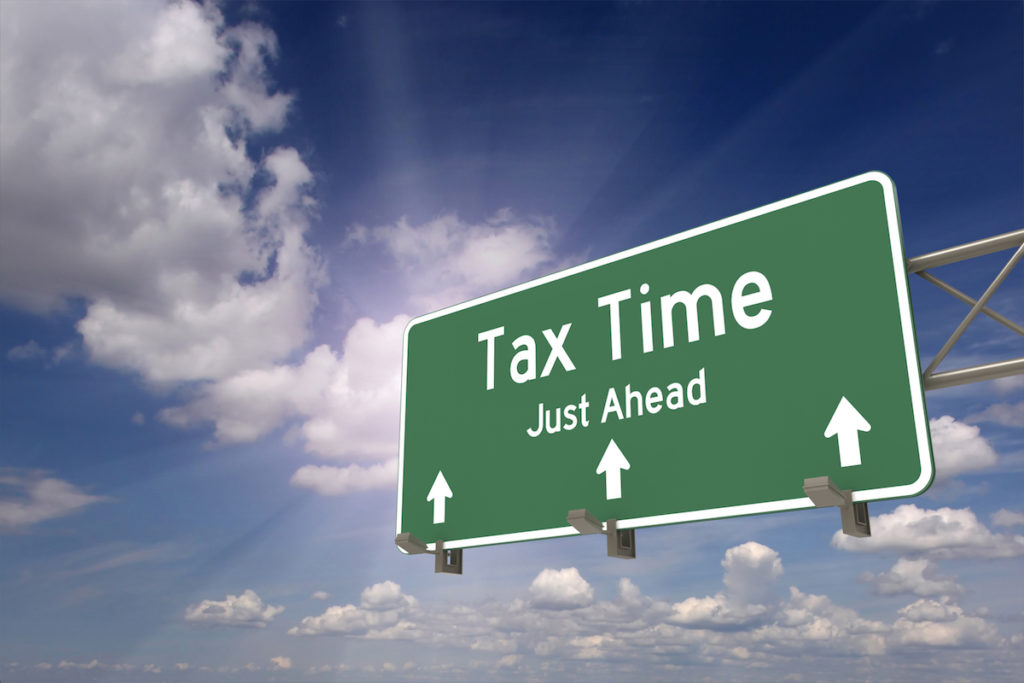Blog
Holiday Homes and the ATO’s Sharpened Focus: What Property Owners Need to Know
For many Australians, a coastal cottage or ski apartment serves two purposes. It provides a personal retreat for family getaways and, when not in use, is listed on
Why SMSF Knowledge Is Essential
Managing a self-managed super fund (SMSF) gives trustees more control over how their retirement savings are invested. However, this control also comes with serious legal responsibilities. Many trustees underestimate how complex the rules can be, and this
Can Your MBA or Further Study Reduce Your Tax Bill? Here’s What You Need to Know
If you’ve taken the step to upskill — whether through an MBA, a management program or another postgraduate qualification — you’ve probably wondered whether any
Payday Super: What Employers Need to Know
Running a business already means keeping several moving parts under control — paying employees correctly, managing budgets, and staying on top of compliance. From 1 July 2026, another major shift will
Medical Expenses vs Tax Rules – What the ATO Really Allows
Picture this scenario. After years of deteriorating health, you are forced to exit the workforce and rely on a Total and Permanent Disability (TPD) pension from your superannuation fund. That pension becomes your only
Proposed Extension of the Immediate Asset Deduction and Other Policies
A new Bill currently before Parliament — the Treasury Laws Amendment (Strengthening Financial Systems and Other Measures) Bill 2025 — outlines several changes
High-Balance Members Need to Know Super Changes
If your superannuation balance is below $3 million, you can relax for now. But if your balance is nearing that amount, or already exceeds it, the Government’s proposed changes could affect how your super is taxed
ATO Interest No Longer Tax-Deductible: How to Manage Your Tax Debts Effectively
Leaving debts outstanding with the ATO has just become more expensive for many taxpayers.
As we outlined in the July edition of our newsletter, from
Supermarket Unit Pricing is Reviewed by Government
The Federal Government has completed its review of supermarket unit pricing — a topic that might seem purely consumer-focused but could carry real implications for businesses in the grocery supply chain.
ATO Focus Areas for 2025–26: What Privately Owned and Wealthy Groups Need to Know
owners, investors, and family groups, this serves as an important reminder to review tax positions, ensure compliance, and identify potential planning
Big Relief Ahead for Australians with Student Debt
The Federal Government has recently introduced significant reforms to student loans aimed at easing the financial pressure on Australians, particularly younger generations grappling with both higher education costs
Trust Resolutions Must Be Valid: Recent Tribunal Case Highlights the Risks
A recent decision of the Administrative Appeals Tribunal (AAT) has served as a timely reminder of the importance of correctly preparing and finalising trust resolutions.
Superannuation Guarantee: Deadlines and Practical Guidance
From 1 July 2025, the superannuation guarantee (SG) rate increased to 12%. This is the final step in a series of planned rises that have been legislated for several years. While the new rate has received attention, the more
Can You Claim Loan Interest as a Tax Deduction?
As at tax time, one of the most common questions ATO receives is whether interest on a loan is tax deductible. It’s an important question as the way interest expenses are treated can make a significant
Luxury Cars: How the Updated Tax Rules Affect Your Wallet
With luxury car sales steadily increasing, understanding how Australia’s tax rules apply to high-end vehicles has never been more important. What many buyers don’t realise is that, in some cases, purchasing an expensive
Superannuation Rates and Thresholds: Key Changes for 2025/2026
The start of the 2025/2026 financial year has brought significant updates to superannuation rates and thresholds that employers, employees, and self-managed
Social Media Isn’t a Tax Adviser – Don’t Risk an Audit
Financial influencers – or “finfluencers” – are everywhere on platforms like Instagram and TikTok. With polished content and confident advice, they’ve built large audiences, but it’s important to be cautious. Following
Tax Update: ATO Interest Deductions Are Going Away
f you’ve got an outstanding tax bill with the ATO, now’s the time to take a closer look. Because from 1 July 2025, it might cost you more than you expect. The government has officially scrapped the tax deductibility of interest
Division 296 Super Tax: What High-Balance Super Fund Members Need to Know
The Federal Government has proposed a new measure that could impact individuals with large superannuation balances. Known as the Division 296 super tax, this
The Labor’s Election Win: What It Means for Your Tax and Business
With Labor returning to government and holding a majority in the House of Representatives, attention is turning to the promises they made during the campaign—and what they still want to achieve. While some
ATO Warning: Avoid Dodgy Tax Deductions
As the 2025 tax season approaches, the Australian Taxation Office (ATO) has issued a timely reminder for taxpayers to tread carefully when claiming work-related expenses. This comes after a number of questionable
ATO’s New Requirements for Not-for-Profit Organisations
For those involved in the administration and governance of not-for-profit (NFP) organisations, it is essential to remain informed about legislative changes and compliance obligations. Of particular importance are the
Understanding the Tax Implications of Property Subdivision Projects
As urban expansion continues across Australia’s major cities, more property owners are considering subdivision projects. While these ventures can be financially rewarding, it’s crucial to understand the potential tax
EOFY Tax Planning for Businesses: Opportunities & Risks
As the end of the financial year approaches, it’s the perfect time to review your tax position. Below, we highlight practical tax-saving opportunities as well as areas where the ATO is paying closer attention. A little
EOFY Tax Planning for Individuals: Strategies & Risks
As the end of the financial year approaches, now is the ideal time to review your tax position. Below we highlight strategies to maximise your deductions and outline areas under increased scrutiny from the
Super Guarantee Catching Up with Contractors and Others: What Employers Need to Know
In Australia, employers must pay superannuation (super) to their workers. This is called the Superannuation Guarantee (SG). It helps workers save for retirement.
Payday Super Reforms: What Employers Need to Know
The government is moving ahead with the Payday Super reforms, and employers should start preparing. Treasury has released draft legislation proposing that employers pay superannuation at the same time as they pay
Residency and Domicile: Tribunal Upholds ATO Decision
The Administrative Review Tribunal (ART) has upheld the ATO’s position, confirming that the taxpayer, Mr Quy, maintained a domicile in Australia and was therefore a resident of Australia for tax purposes under section 6(1)
Unexplained Deposits Counted as Assessable Income
The Full Federal Court overturned an earlier decision by the Federal Court in Commissioner of Taxation v Liang [2025] FCAFC 4. It ruled that unexplained cash deposits made into a trust should be treated as taxable income.
Trade Wars and Tariffs: Understanding the Impact
ariffs function as taxes on imported goods, increasing their prices and discouraging trade. Historically, they have been used to shield domestic industries from foreign competition. By making imports more expensive,
Federal Budget 2025-26 Tax Insight
We take insight here of the mainly tax changes in the Federal Budget 2025-26 announced in March 2025, in relates to the topics of Individual & Families, Business & Employers, Government & regulators, & The Economy.
Modest Personal Income Tax Cuts
Important Reminders for Not-for-Profits on Self-Review Returns
The Australian Taxation Office (ATO) is reminding not-for-profit (NFP) organisations of the approaching deadline for lodging their NFP self-review return. Non-charitable NFPs that self-assess as income tax exempt
Fringe Benefits Tax (FBT) 2024-25
As the end of the Fringe Benefits Tax (FBT) year (31 March) is approaching, this article highlights key areas that employers and employees should focus on.
FBT Updates and Common Issues
Exemption of FBT for electric car
Ensuring Your Superannuation is Paid Smoothly After Death
The Australian Government has announced plans to introduce mandatory standards for large superannuation funds aimed at improving the efficiency and compassion of death benefit payouts. This raises the question: Is
Section 99B: How It Affects Non-Resident Trusts and Australian Beneficiaries
The Australian Taxation Office (ATO) has issued guidance on how Section 99B of the Income Tax Assessment Act 1936 (ITAA 1936) applies to distributions from non-
Why the ATO is Watching Baby Boomer Wealth
The Australian Taxation Office (ATO) is paying close attention to wealthy baby boomers, especially those who own family-run businesses. Many of these individuals are passing on their businesses and assets to their children
What Lies Ahead in 2025: Key Changes and Challenges
The last few years have been marked by economic and political uncertainty. As we approach 2025, there is cautious optimism for increased stability—though no guarantees. Below, we explore the key developments and
Tax-Savvy Christmas Celebrations: What You Need to Know
As the festive season approaches, many businesses are planning Christmas parties and gifts. But how can you avoid giving an unexpected present to the Australian Tax Office (ATO)? Here are some key considerations for
Tax Deduction Denied for Basketball Shoe R&D
The Federal Court recently decided against a sports company that wanted to claim tax benefits for research and development (R&D) work on an Australian signature basketball shoe.
Tax Obligations for International Workers: A Simple Guide
with overseas, non-resident workers can be a great opportunity for Australian businesses, but it also brings some important tax responsibilities. Let’s break this down in simple terms to help you understand the basics.
Are Student Loans Too Big? Understanding HECS-HELP and Loan Management in Australia
alia prides itself on maintaining a more equitable approach to education compared to the United States, where access to higher education often depends on
What Makes or Breaks the Christmas Season for Business?
While cost-of-living pressures have slightly eased this year, consumers and businesses alike continue to feel financial strain, making careful planning essential for companies navigating the holiday season.
Government Moves to Ban Genetic Test Discrimination in Life Insurance
The Australian government is planning to ban life insurers from using predictive genetic test results to discriminate against people. Predictive genetic tests can identify gene variants linked to diseases that might
Payday Super: A New Approach to Superannuation Contributions
A significant shift in the administration of the superannuation guarantee (SG) is set to take place, introducing what is known as payday super. . This change, aimed at improving the efficiency of super
Succession 01: A Tax Perspective on Inheriting Assets
Each month, we will explore various aspects of transferring property, such as estate planning, handling inheritances, and business succession. This month, let’s focus on the tax implications of inheriting assets—an
Tax Identity Theft: The Growing Threat of myGov Scams
When accessing your myGov account, you notice that your activity statements from the past year have been modified, and $100,000 in GST credits have been issued. The problem? You weren’t the one who made these
Investment Property and High-Value Lifestyle Assets Under ATO Scrutiny
Do you own an investment property or luxury lifestyle assets such as a boat, a high-end vehicle, or even an aircraft? If so, the Australian Taxation Office (ATO) is keeping a close eye on these assets to ensure that what
Is the Reserve Bank of Australia (RBA) to Blame for Economic Struggles?
The Reserve Bank of Australia (RBA) has been at the center of debate, with politicians and the public questioning its policies on interest rates. There’s
Sharp Increase in Business Bankruptcies
The Australian Securities and Investments Commission (ASIC) recently reported a significant 39% uptick in corporate insolvencies compared to the previous financial year. Industries like construction,
When is a Gift Not Considered a Gift?
In a recent Federal Court case, the Tax Commissioner successfully argued that over $1.6 million deposited into an Australian couple’s bank account constituted assessable income rather than a gift or loan from friends.
Understanding Capital Gains Tax (CGT), etc and Divorce
Divorce and separation are difficult life events, bringing not just emotional stress but also financial complications. One of the key issues that arise during a relationship breakdown is how assets are divided
Instant Asset Write-Off and Energy Incentive for Small Businesses
Exciting news for small businesses! Two significant changes are happening for the 2024 financial year, thanks to new laws passed by Parliament recently. These changes provide fantastic opportunities for small
Is Your Family Home Truly CGT Exempt?
The main residence exemption typically shields your family home from capital gains tax (CGT) upon its sale. However, as with many tax matters, it’s not straightforward. Below, we delve into the key aspects of
Navigating Changes for 2024-25
As of 1 July 2024, personal income tax cuts are now active. Additionally, the superannuation guarantee (SG) rate has increased by 0.5% to 11.5%. Employers need to update their payroll systems, including salary sacrifice agreements, to accommodate these changes. PAYG
The Denial of Deductions for Meal Expenses Below the ATO’s Reasonable Amount
In the tax case of Duncan and Commissioner of Taxation [2024] AATA 974, the Administrative Appeals Tribunal (AAT) looked at a situation where a taxpayer, Mr. Duncan
Essential Guide for June 30: Maximizing Deductions and Mitigating ATO Risks
With the financial year-end approaching, here’s a concise guide on areas under ATO scrutiny and strategies to optimize your deductions.
Trust Income Distribution Under Scrutiny
The Australian Taxation Office (ATO) has issued a stern warning to trustees, emphasizing the importance of carefully considering how and to whom trust income is distributed. In recent years, trust distribution
A Tax Professional’s Perspective on Wealth Transfer and Home Ownership
The ongoing transfer of wealth from the baby boomer generation is underscored by the pivotal role of homeownership, particularly as property prices soar, with
Federal Budget 2024-25 Tax Insight
We take insight here of the mainly tax changes in the Federal Budget 2024-25 announced in May 2024, in relates to the topics of Individual & Families, Superannuation & Investors, Business & Employers. As announced before, the government has made permanent
Crackdown on Misuse of Company Funds
Utilizing company resources for personal gain is a common practice among business owners, often blurring the line between their business and personal life. However, the Australian Taxation Office (ATO) is
Navigating Generational Succession: A Comprehensive Guide for Family Businesses
Transitioning a family business from one generation to the next is a complex process that demands careful planning and execution. While the idea of passing the
ATO Alerts SMSF Trustees on Crucial Asset Valuation Practices
The Australian Taxation Office has recently issued a stern warning directed at trustees of self-managed superannuation funds, underscoring a significant issue with the practices surrounding asset valuations.
Understanding Your Business’s Worth: Key Factors and Tips
For many small business owners, their business isn’t just a source of income; it’s their biggest investment, often meant to support their retirement. But figuring out exactly how much your business is worth
ATO cracks down on Professional Services Firms’ Tax Avoidance Tactics
The Australian Taxation Office (ATO) is tightening its grip on professional services firms suspected of diverting profits to evade taxes. Two recent cases brought before the Administrative Appeals Tribunal
Reminder from ATO: Australian Taxpayers’ Unpaid Tax Debt
In recent times, the Australian Taxation Office (ATO) has been sending shockwaves through the taxpayer community by alerting individuals and their tax agents to unpaid historical tax obligations.
Reclaiming Investments: Tax issue for business withdraw the initial injection
However, a recent case underscores the importance of understanding the tax consequences associated with withdrawing funds from a company for personal use.
Profit Intentions in Property Transactions: Lessons from a Tax Dispute
In a recent case before the Administrative Appeals Tribunal, the intricacies of tax law and property transactions came to the forefront as a taxpayer
Stage 3 of the personal income tax cuts significant adjustment
Originally set to commence on July 1, 2024, the Stage 3 of the personal income tax cuts will undergo a significant overhaul as proposed by the Federal Government.
Navigating 2024: Understanding Economic Changes, Tax Reforms, and Work Trends
hanges, and changing work dynamics taking centre stage. This article explores the key factors that will shape the year ahead, breaking down the complex
ATO’s warning in Investment Loan Reporting
related to rental properties, estimating an annual loss of approximately $1 billion in tax revenue. A significant contributor to this issue lies in the questionable practices surrounding the claiming of interest on
Addressing the Superannuation Guarantee Gap: A Closer Look at Hidden Wages, Late Payments, and Future Reforms
The Australian Taxation Office (ATO) reveals a concerning statistic: workers are owed an estimated $3.6
When does food become GST-free?
Chobani’s plain yogurt is exempt from GST, but their ‘flip’ range is taxable. A recent case before the Administrative Appeals Tribunal (AAT) highlights the fine line between GST-free and taxable foods. In 2000, when the Goods & Services Tax (GST) was initially introduced, basic food
Self-Education Expenses and Tax Deductions: What’s Allowable?
The Australian Taxation Office (ATO) has recently issued a draft ruling on self-education expenses which clarifies what can and cannot be claimed as deductions. If you pursue education related to your current job, you can
Empowering Your Business with Electrification: Unlocking the $20k Tax Deduction
Electricity is rapidly becoming the energy source of choice, supplanting traditional fossil fuels and natural gas in various industries. To encourage businesses to
Tax Implications for Content Creators on Platforms like OnlyFans
The rise of OnlyFans, YouTubers, TikTokers, and other content platforms presents lucrative opportunities for content creators to monetize their audience. However, the tax authorities are now paying attention to this
Australia’s Superannuation: Envisioning Retirement and Factors affect Your Needs
Australia’s superannuation system has come a long way, focusing on securing people’s finances in retirement. Recently proposed laws define the purpose of
The Crucial Role of Timing and Tax Residency for International Taxation
n a recent case heard by the Administrative Appeals Tribunal (AAT), the timing of employment income plays a significant role in determining an individual’s tax obligations, especially in the context of changing tax
Why this year tax refund is much smaller?
ticed a significant reduction in their expected tax refunds for financial year 2023, prompting questions about what’s behind this change. This article will tell you why.
Challenges of Successful Generational Succession
Transitioning a family business to the next generation is not just a theoretical legacy; it’s a practical endeavour that goes beyond wealthy clans. This process involves passing on the business operations, ownership, and
Exploring the Tax Implications of Small-Scale Subdivisions
You possess a piece of land that is ideal for a subdivision. All the necessary arrangements have been sorted out with the Council, builders, and the bank. However, a crucial aspect has been overlooked: the tax
The 120% Technology and Skills ‘Boost’ Deduction for SMEs – 2
The 120% technology and skills ‘boost’ deduction is a tax incentive introduced in the 2022-23 Federal Budget for small and medium-sized businesses (SMEs) in Australia. The boost allows eligible SMEs to claim a 120% tax
What changed in FY2024
Employers & Business:
• The Superannuation Guarantee has been raised to 11% from its previous rate of 10.5%.
• National and Award minimum wage increases have been implemented.
The 120% Technology and Skills ‘Boost’ Deduction for SMEs – 1
investments and skills and training expenditure by small and medium businesses (SMEs) has finally become law. People who follow our social media has been informed to record these types of expense into a separated
Changes to Working from Home Deduction in Australia: Financial Year 2023 vs. 2022
For the financial year 2023, taxpayers have the option to choose one of two methods to claim their deductions for working from home: the “fixed rate” method or the
Crypto Taxes in Australia: A Guide for Investors and Traders
To help you along the way, this article will outline the implication of tax on crypto assets in two aspects, which is Capital Gains Tax (CGT) for crypto investors and income tax for crypto traders.
Federal Budget 2023-24 Tax Insight
The Australian Federal Budget 2023-24 is announced on 9 May 2023. As usual, in this article, we mainly look into the details of the business and super fund tax changes given there isn’t much individual tax changes in this budget including any amendment on the controversial
What’s New Tax Rules to Electric Cars?
The Australian Taxation Office (ATO) has released updated information on electric vehicles just in time for the Fringe Benefits Tax (FBT) year that began on April 1.
The ATO’s conclusive stance on precarious trust distributions
The ATO has recently published its final position (TR 2022/4) on trust distributions that pose a risk to the integrity of the tax system. Specifically, the ATO has clarified how section 100A, an integrity rule that aims to
Working from home tax claim rule has been changed
The Australian Taxation Office (ATO) has updated its approach to claiming expenses for working from home. Taxpayers can now claim 67 cents per hour for all expenses related to working from home, including
Law Firm Trust Account External Examination
As a law firm in New South Wales or Victoria, one of the obligations is to have your trust account examined every year between 1 April and 31 May.
How capable is ChatGPT in terms of Australian taxation?
Not to be overly skeptical, but we are just curious about the ability of this latest AI software ChatGPT – in dealing with the Australian tax system, so we conducted a simple test.
Last chance – Director ID due on 14 Dec 2022
have been set out by the Australian Taxation Office (ATO) for Australians who are the directors of companies and now have less than two weeks to take action to avoid a big fine of $13,000.
Federal Budget 2022-23 2.0 Tax Insight
We take insight here of the mainly tax changes in the Federal Budget 2022-23 2.0 announced in October 2022, in relates to the topics of Individual & Families, Superannuation & Investors, Business & Employers, and
NSW Business Support 2022
The NSW Government has announced a $1bn support package for the NSW small businesses affected by the Omicron outbreak.
The NSW Treasurer Matt Kean, acknowledging the difficulties that NSW small business are facing due
2021 NSW COVID-19 Support – Business
We summarise the NSW COVID-19 main government supports: 2021 COVID-19 business grant; JobSaver payment; 2021 COVID-19 micro-business grant; Payroll tax concessions; Land tax relief.
Elgibility of JobKeeper 2.0 has been further relaxed
On 7 August, the Government modified the eligibility of JobKeeper Payment 2.0 (extended JobKeeper 1.0 to 28 March 2021), aiming to embrace more people and businesses who have been affected by the ongoing crisis. The change is in response to the undeniable second COVID-19 wave in Victoria,
JobKeeper and JobSeeker have been extended
Later last month, the government announced to extend JobKeeper Payment by six months to 28 March 2021 and the JobSeeker Payment to 31 December 2020. The extension is aiming to build up the confidence for economy recovery and continue to support the business and community.
Key Tax Changes for the New Financial Year 2021
2020 is already halfway and we are all heading into the new financial year. Despite there are quite many changes from the government stimulus package, there are still some key changes that we can take a look at for Financial Year 2021.
Happy New Financial Year
A new financial year is an important time for all kinds of businesses, from sole traders to big corporate. It is not only to meet your tax obligations with the Australian Taxation Office, but also the perfect time to plan for the next 12 months of your business.
Don’t Miss Out the $25K HomeBuilder Grant
Given the impact of Bushfire and COVID-19, Australia has entered into an economic recession first time in the last 30 years. Last a couple of weeks, we have witnessed the Federal Government announced that they have been working with States and Territories to offer a $25,000 HomeBuilder Grant
Don’t let coronavirus sink you and your business
The last few months have shown a constant display of obscure challenges related to maintaining business during the COVID-19 pandemic for business owners and leaders everywhere. The latest obscure challenge is possibly the trickiest yet: how to cautiously recommence businesses after the government announced the major easing of coronavirus restrictions.
How SME get recovered after the COVID-19
As the lockdown has been gradually lifted, how would SME self-adjust their business and catch up with the changing market in order to bring their business back to normal or even beyond?
It’s ‘TAX’ time again
Tax time is fast approaching and for some of you this might be the last thing on your mind. There might be other things that are more important for you to get through this uncertainty. However, now is the best time to get your tax affair in order and avoid last minute planning that can cost you.
The Second and Third Stimulus Package Plan – Which One Suits You
Followed by the first Stimulus Package plan announced on 12th March 2020, the federal government has rolled out the second and third Stimulus Package plan with a total amount of up to 200 billion dollars in last two weeks aiming at helping small and medium business
Simplifying deductions for working from home
As the coronavirus outbreak grows, more people are forced to work from home. While working from home can come with its benefits like getting to sleep in longer, avoid the daily commute and work from bed in your pyjamas, it can also hurt your hip pocket if you’re having to fork out for expenses your employer would normally cover, like increase utility bills, phone and home internet bills.
The Tax-Free Payments to Employers
With the announcement from Federal Governments Economic Response to the COVIC-19 Coronavirus, the cash flow grant for employers measure is designed to support employing small and medium sized businesses and to improve business confidence. The measures also supports the activities of not-for-profits (including charities) at a time where they are facing increased demand for services.
COVID-19 Business Continuity Plan
The COVID-19 situation is bigger than any of us have ever faced. Our clients, professionals, mum’s and dad’s don’t understand how badly they need accountants and advisors’ help. They are scared and don’t know what to do, and most probably haven’t really thought through what the consequences will be for them.
How small and medium business benefit from the Stimulus Package
Hit by the bushfire, Coronavirus (COVID-19) and global economy downturn, the Federal Government has announced a $17.6 billion Stimulus Package on 12 March 2020 to maintain Australians in jobs,
COVID-19 and your business
With the development of COVID-19 from epidemic to pandemic status, businesses across Australia are facing the possibility of harmful effect. We are all aware of the impact and potential expansion of Coronavirus on the world, but what are the potential…
ATO and other authorities’ support for bushfire victims
The country is suffering billions of dollars’ loss during the bushfire season. Returning life to normal is a long way to go for most of us. Therefore, we summarize some assistance available offered by the ATO and other
CGT exemption on Main Residence is not any more to Foreign Resident
The proposal in 2017-18 Federal Budget for stopping foreign residents from claiming CGT main residence exemption has passed by the Parliament before Christmas 2019 and takes effect retrospectively from 9 May 2017.
Superannuation Guarantee Amnesty
The Government has restored the Superannuation Guarantee (SG) amnesty aiming to provide employers who have fallen behind with their SG obligations the one-off opportunity to “self-correct”. However, this time those continually fail to take any action will be heavily
Managing Cash Flow
Cash flow is one of the most important components of success for a SME business. Without cash, profits are meaningless. Organisations that don’t implement good cash management may not be able to make the investments needed to compete, or they…
Deduction Changes of Vacant Land Affecting Small Property Development
A new law has come into effect through the Parliament last month, denying the deductions for holding expenses associated with vacant land, which currently would be deductible in the ordinary course. The legislation is not only retrospective but also go beyond purely vacant land. Before, the old law allows those who hold vacant land with an intention to build a rental property on it to claim the tax deduction for costs of holding the land
Guide to Low and Middle Income Tax Offset (LMITO) of $1,080
We have received questions from our taxpayers wanting to know the recent tax relief of $1080. Although the immediate relief has been introduced in the 2019 Federal Budget, this article will explain in more detail aiming to provide you with a better understanding about this tax cuts. Firstly, tax offset of $1080 will not automatically come to you when you lodge your tax return. So what is the Low and Middle Income Tax Offset?
PAYG Withholding Tax Deduction Denial
Government has passed a legislation right before Christmas 2018 which will prevent a deduction from being claimed for salary and wages (and certain other payments) by a business that fails to meet its PAYG withholding obligations. This change will apply to payments made from 1 July 2019 onwards. The existing penalties for failing to comply with PAYG withholding obligations are already significant, this adds another financial incentive for businesses to ensure that they are compliant with PAYG withholding obligations.
For All Business – Single Touch Payroll
From 1 July 2018, ATO has enforced a new legislation on the payroll reporting system. The new legislation requests business with 20 or more employees to use the Single Touch Payroll (STP) enabled software to report employees’ payroll information including superannuation. Business with less than 20 employees has to implement Single Touch Payroll system too by 1 July 2019 (this hasn’t been lawed yet). Under the new Single Touch Payroll reporting system, payroll information will be instantly sent to ATO at each pay run.
Ebay and Amazon overseas sellers are hammered by the new GST legislation
Recently, the Australian government has introduced a new GST legislation on the imported low value goods. The new legislation will be effective from 1 July 2018 and it will affect thousands of online platform overseas sellers whose annual GST turnover is over $75,000,
Find Your Suitable Business Structure
If we metaphorize a business to a building, structure to the business will be as important as foundation to the building. A suitable structure can provide tax effectiveness and assets protection to a business. Contemporarily, sole trade, company and trust are common structures used in business.
Investment property tax return
Investment property tax return can be very tricky and complicated, especially new laws will be enacted according to the recent federal budget. No matter you are in Australia or an overseas investor, you will have to lodge the tax return by 31 October every year if you are having an investment property and earning rental income or capital gain in Australia.
Income tax return and tax deduction
Along with the closing of financial year 2017, here comes the tax return time again. During the years, we have seen many clients made mistake with their tax return and led to either ATO penalty or hundreds and thousands dollars losing in tax payment
NSW will raise Surcharge Purchaser Duty and Land Tax Surcharge again to foreign persons
Recently, the NSW government has announced that the surcharge purchaser duty and land tax surcharge will be raised again to foreign person investing in residential
Federal Budget 2017 Tax Highlights
The Australian government has just announced 2017 Federal Budget tonight. At Pitt Martin, we closely keep update our knowledge with government tax legislation and economy changes. Here is some key points we think can be relevant to the tax payers and business owners.
Land Tax Surcharge
From 1st January 2017, if you or your family and associates are a foreign person, your NSW residential land might be subject to 0.75% land tax surcharge charged by Office of State Revenue.
Tax Planning – Super
Are you a high wages owning employee or a self-employed business owner who paid too much tax last year? There is an effective way to reduce the tax liability by directing the income into your super.
Individual or Corporate Trustee for Self Managed Super Fund
In Pitt Martin, we specialized to help clients set up SMSF and manage the super fund tax affairs. Call us today on 02 9221 3345 or email to connect@pittmartingroup.com.au.





